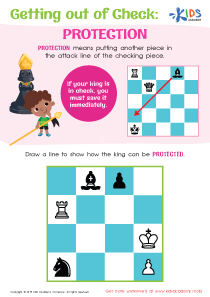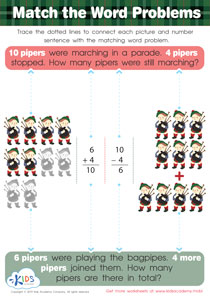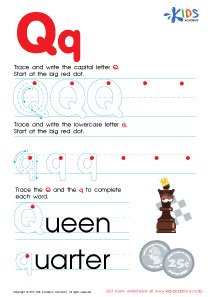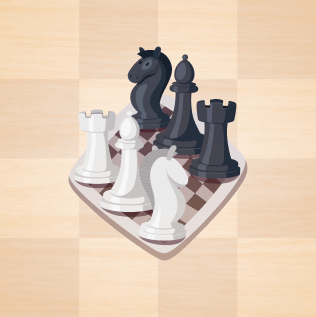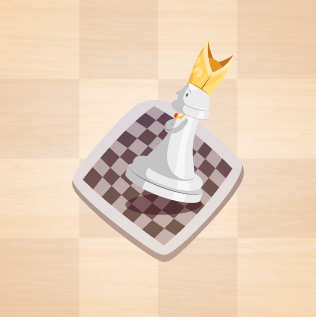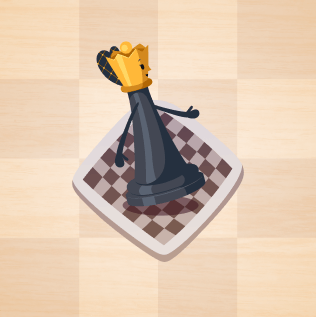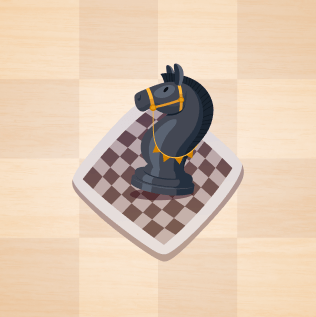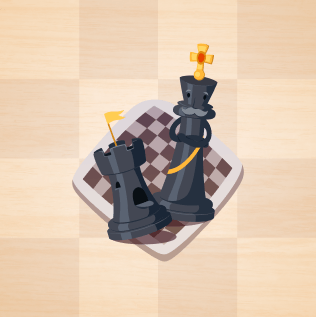Chess Lessons | Purpose of the Game for Ages 7-8
9 results
Dive into the exciting world of "Purpose of the Game for Ages 7-8," a specially curated program designed to engage young minds through a blend of interactive worksheets, educational videos, and assessment quizzes. Perfect for children aged 7 to 8, these lessons aim to instill a deeper understanding and appreciation of game objectives, enhancing strategic thinking and cooperation skills. Through interactive activities, children will discover the fun in learning game rules and strategies, ensuring they not only play but also think critically about the games they enjoy. Join us for a journey of discovery, fun, and learning with "Purpose of the Game for Ages 7-8."
In the developmental stages of children aged 7 to 8, incorporating interactive and engaging elements into their learning process is crucial. The "Purpose of the Game for Ages 7-8" lessons are meticulously designed to cater to this need, offering a unique blend of education and entertainment that not only captivates the young minds but also instills in them a deep understanding of various subjects. These lessons, through a combination of interactive worksheets, educational videos, and assessment quizzes, promise an enriching learning experience that can significantly benefit kids in their studies.
At the heart of the "Purpose of the Game for Ages 7-8" lessons is the aim to transform educational content into an adventure that children look forward to. By integrating games and interactive activities, these lessons tap into the innate curiosity of children, making learning a process of discovery. This approach does not only make learning more enjoyable but also enhances retention. When children learn by doing, they tend to remember concepts better and can easily recall this information when needed in their studies.
Moreover, the interactive worksheets provided in the "Purpose of the Game for Ages 7-8" lessons serve as an excellent tool for reinforcing learned concepts. These worksheets are designed to challenge children's understanding in a fun and engaging way, ensuring that they apply what they have learned. This method of active engagement helps cement the information in their minds, which is particularly beneficial when they encounter similar topics in their academic studies.
The educational videos included in the lessons are another asset that aids in the learning process. These videos are crafted to present information in a visually appealing and easy-to-understand manner. For visual learners, especially, these videos can make complex concepts more accessible. Moreover, the ability to pause, rewind, and rewatch the videos allows children to learn at their own pace, fostering a sense of independence and confidence in their learning abilities.
Assessment quizzes cap off the learning experience, offering both parents and educators a tangible measure of the child's understanding and progress. These quizzes are designed to be fun and interactive, removing any apprehension or fear children might have towards assessments. Consequently, children view these quizzes as part of the game, which can alleviate test anxiety and improve their performance not only in these assessments but also in their academic evaluations.
Incorporating the "Purpose of the Game for Ages 7-8" lessons into children's studies not only aids in their academic growth but also contributes to their overall development. These lessons teach children essential life skills such as problem-solving, critical thinking, and persistence. Through interactive learning, children learn to approach problems creatively, think critically about the information presented to them, and persist through challenges, skills that are invaluable in both their academic and personal lives.
In conclusion, the "Purpose of the Game for Ages 7-8" lessons offer a holistic approach to learning that goes beyond traditional education methods. By making learning an enjoyable and interactive experience, these lessons can significantly enhance children's understanding of various subjects, contribute to their academic success, and equip them with skills that will serve them well throughout their lives.
